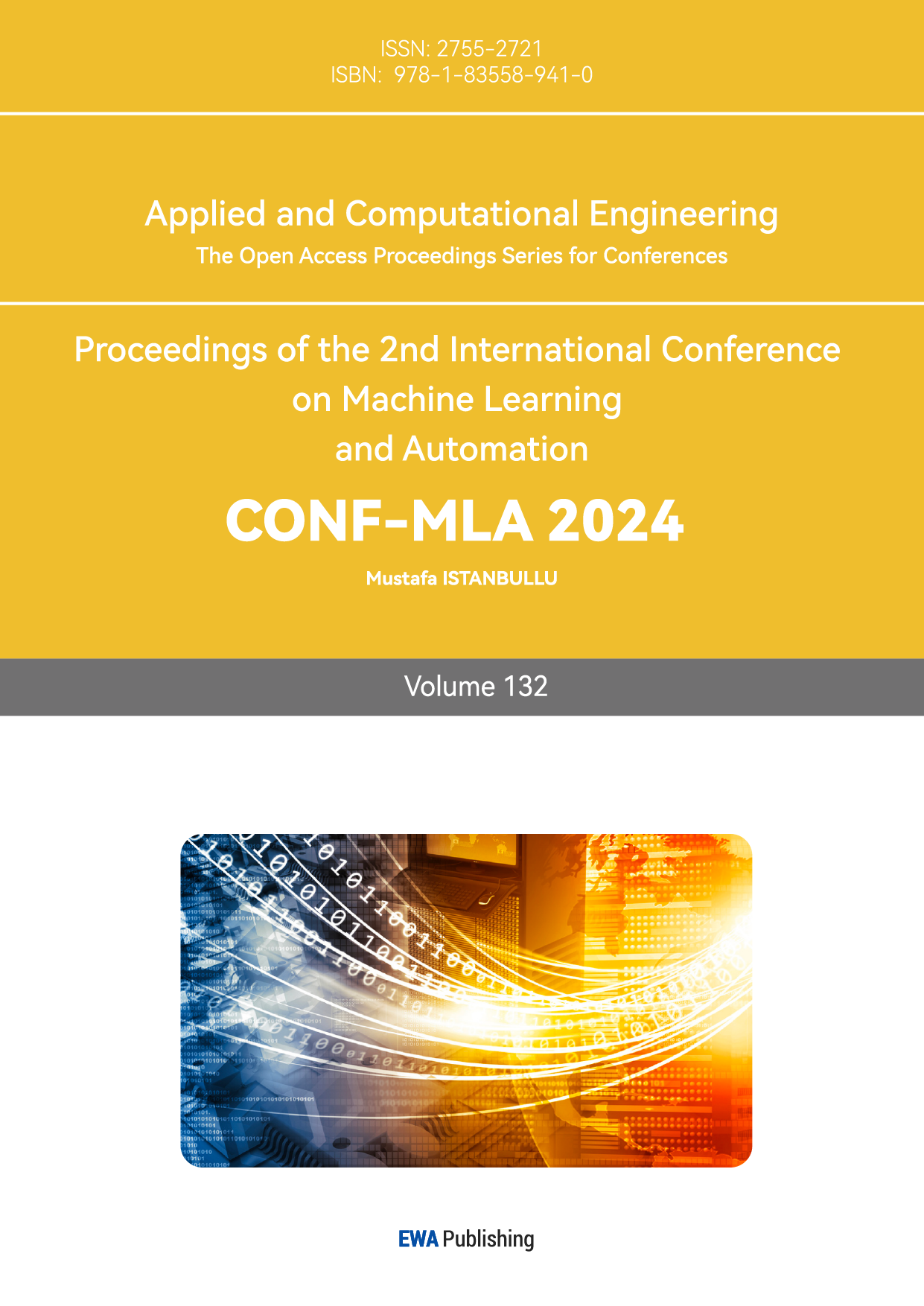References
[1]. Chris Johnson. Shell Scripting Recipes: A Problem-solution Approach. Apress, 2006.
[2]. Cameron Newham. Learning the bash shell: Unix shell programming. ” O’Reilly Media, Inc.”, 2005.
[3]. Ganesh Sanjiv Naik. Learning Linux Shell Scripting: Leverage the power of shell scripts to solve real-world problems. Packt Publishing Ltd, 2018.
[4]. Leonardo Leite, Carlos Eduardo Moreira, Daniel Cordeiro, Marco Aurelio Gerosa, and Fabio Kon. Deploying large-scale´ service compositions on the cloud with the choreos enactment engine. In 2014 IEEE 13th international symposium on network computing and applications, pages 121–128. IEEE, 2014.
[5]. Andre Goforth. The role and impact of software coding standards on system integrity. In AIAA Infotech@ Aerospace (I@ A) Conference, page 5222, 2013.
[6]. Deepti Raghavan, Sadjad Fouladi, Philip Levis, and Matei Zaharia. {POSH}: A {Data-Aware} shell. In 2020 USENIX Annual Technical Conference (USENIX ATC 20), pages 617–631, 2020.
[7]. Nikos Vasilakis and Konstantinos Kallas. Pash: Light-touch data-parallel shell processing. In ProceedingsoftheSixteenth European Conference on Computer Systems, pages 49–66, 2021.
[8]. Tammam Mustafa, Konstantinos Kallas, Pratyush Das, and Nikos Vasilakis. {DiSh}: Dynamic {Shell-Script} distribution. In 20th USENIX Symposium on Networked Systems Design and Implementation (NSDI 23), pages 341– 356, 2023.
[9]. Dan Ofer, Nadav Brandes, and Michal Linial. The language of proteins: Nlp, machine learning & protein sequences. Computational and Structural Biotechnology Journal, 19:1750–1758, 2021.
[10]. Dimitris Karnikis and Tammam Mustafa. Binpash benchmark.
[11]. Tammam Mustafa. Parallel and Distributed Just-in-Time Shell Script Compilation. PhD thesis, Massachusetts Institute of Technology, 2022.
[12]. Konstantinos Kallas, Filip Niksic, Caleb Stanford, and Rajeev Alur. Diffstream: differential output testing for stream processing programs. Proceedings of the ACM on Programming Languages, 4(OOPSLA):1–29, 2020.
[13]. Jinsuk Kim, Dong-Hoon Yoo, Heejin Jang, and Kimoon Jeong. Webshark 1.0: a benchmark collection for malicious web shell detection. Journal of Information Processing Systems, 11(2):229–238, 2015.
[14]. Gong Fan. NVIDIA Performance Testing for Emulation of the Grace CPU. PhD thesis, NVIDIA Corporation, 2021.
[15]. Olga Manankova, Mubarak Yakubova, and Alimjan Baikenov. Cryptanalysis the sha-256 hash function using rainbow tables. Indonesian Journal of Electrical Engineering and Informatics (IJEEI), 10(4):930–944, 2022.
Cite this article
Xu,Y. (2025). Performance Shell Benchmark Correctness, Efficiency, and Beyond. Applied and Computational Engineering,132,250-256.
Data availability
The datasets used and/or analyzed during the current study will be available from the authors upon reasonable request.
Disclaimer/Publisher's Note
The statements, opinions and data contained in all publications are solely those of the individual author(s) and contributor(s) and not of EWA Publishing and/or the editor(s). EWA Publishing and/or the editor(s) disclaim responsibility for any injury to people or property resulting from any ideas, methods, instructions or products referred to in the content.
About volume
Volume title: Proceedings of the 2nd International Conference on Machine Learning and Automation
© 2024 by the author(s). Licensee EWA Publishing, Oxford, UK. This article is an open access article distributed under the terms and
conditions of the Creative Commons Attribution (CC BY) license. Authors who
publish this series agree to the following terms:
1. Authors retain copyright and grant the series right of first publication with the work simultaneously licensed under a Creative Commons
Attribution License that allows others to share the work with an acknowledgment of the work's authorship and initial publication in this
series.
2. Authors are able to enter into separate, additional contractual arrangements for the non-exclusive distribution of the series's published
version of the work (e.g., post it to an institutional repository or publish it in a book), with an acknowledgment of its initial
publication in this series.
3. Authors are permitted and encouraged to post their work online (e.g., in institutional repositories or on their website) prior to and
during the submission process, as it can lead to productive exchanges, as well as earlier and greater citation of published work (See
Open access policy for details).
References
[1]. Chris Johnson. Shell Scripting Recipes: A Problem-solution Approach. Apress, 2006.
[2]. Cameron Newham. Learning the bash shell: Unix shell programming. ” O’Reilly Media, Inc.”, 2005.
[3]. Ganesh Sanjiv Naik. Learning Linux Shell Scripting: Leverage the power of shell scripts to solve real-world problems. Packt Publishing Ltd, 2018.
[4]. Leonardo Leite, Carlos Eduardo Moreira, Daniel Cordeiro, Marco Aurelio Gerosa, and Fabio Kon. Deploying large-scale´ service compositions on the cloud with the choreos enactment engine. In 2014 IEEE 13th international symposium on network computing and applications, pages 121–128. IEEE, 2014.
[5]. Andre Goforth. The role and impact of software coding standards on system integrity. In AIAA Infotech@ Aerospace (I@ A) Conference, page 5222, 2013.
[6]. Deepti Raghavan, Sadjad Fouladi, Philip Levis, and Matei Zaharia. {POSH}: A {Data-Aware} shell. In 2020 USENIX Annual Technical Conference (USENIX ATC 20), pages 617–631, 2020.
[7]. Nikos Vasilakis and Konstantinos Kallas. Pash: Light-touch data-parallel shell processing. In ProceedingsoftheSixteenth European Conference on Computer Systems, pages 49–66, 2021.
[8]. Tammam Mustafa, Konstantinos Kallas, Pratyush Das, and Nikos Vasilakis. {DiSh}: Dynamic {Shell-Script} distribution. In 20th USENIX Symposium on Networked Systems Design and Implementation (NSDI 23), pages 341– 356, 2023.
[9]. Dan Ofer, Nadav Brandes, and Michal Linial. The language of proteins: Nlp, machine learning & protein sequences. Computational and Structural Biotechnology Journal, 19:1750–1758, 2021.
[10]. Dimitris Karnikis and Tammam Mustafa. Binpash benchmark.
[11]. Tammam Mustafa. Parallel and Distributed Just-in-Time Shell Script Compilation. PhD thesis, Massachusetts Institute of Technology, 2022.
[12]. Konstantinos Kallas, Filip Niksic, Caleb Stanford, and Rajeev Alur. Diffstream: differential output testing for stream processing programs. Proceedings of the ACM on Programming Languages, 4(OOPSLA):1–29, 2020.
[13]. Jinsuk Kim, Dong-Hoon Yoo, Heejin Jang, and Kimoon Jeong. Webshark 1.0: a benchmark collection for malicious web shell detection. Journal of Information Processing Systems, 11(2):229–238, 2015.
[14]. Gong Fan. NVIDIA Performance Testing for Emulation of the Grace CPU. PhD thesis, NVIDIA Corporation, 2021.
[15]. Olga Manankova, Mubarak Yakubova, and Alimjan Baikenov. Cryptanalysis the sha-256 hash function using rainbow tables. Indonesian Journal of Electrical Engineering and Informatics (IJEEI), 10(4):930–944, 2022.









